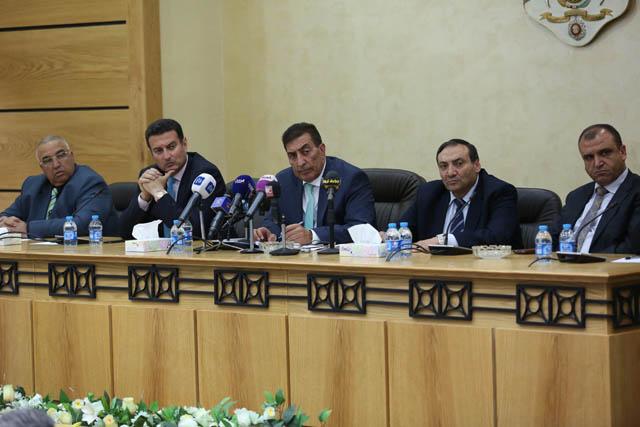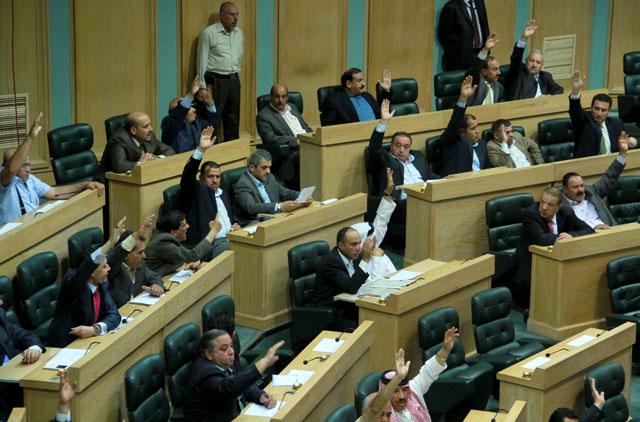You are here
Parliament extraordinary session expected in June — Tarawneh
By Khaled Neimat - May 06,2014 - Last updated at May 06,2014

AMMAN — Parliament will most likely reconvene in an extraordinary session as of early June, Lower House Speaker Atef Tarawneh said Tuesday.
The session will have a “packed agenda”, with more than 15 draft laws awaiting discussion and endorsement, Tarawneh told reporters.
“I have submitted a request to hold the session, but the final decision is in the hands of His Majesty King Abdullah,” he said.
At a press conference to highlight the achievements of the Lower House during its last ordinary session, which was prorogued by the King as of May 3, Tarawneh noted that the 150-strong Chamber of Deputies endorsed 34 laws in 56 meetings.
The endorsed pieces of legislation included key bills such as the State Security Court, anti-terrorism, Anti-Corruption Commission, and illicit fortune laws, in addition to the state budget.
Also, MPs submitted 762 questions out of which the government provided answers to 542, he said.
The Lower House convened for its six-month Ordinary Session on November 3, 2013.
In a “new practice by the Lower House”, deputies submitted proposals to the government to amend two laws — the Constitutional Court Law and the Penal Code, according to Tarawneh.
In addition, the Lower House submitted 140 memos, three of which were requests for a revote of confidence in the government. One confidence session was held in response to these memos, where the government again won the vote.
Tarawneh highlighted the Lower House’s participation in several regional and international conferences, noting that there was more focus on “parliamentary diplomacy” during the last session than previous ones.
But the speaker said the legislature was not yet ready to produce a parliamentary government.
The country must first develop the roles of political parties to enable them to form solid blocs within Parliament, he added. “In my opinion, it is not convenient at present to make such move.”
He expressed his support for the coalitions and the alliances that MPs have formed.
“In order for the Lower House to deal with these entities in a legal and systematic manner, they must develop into registered blocs,” Tarawneh noted.
A significant number of MPs have gathered in coalitions outside the Dome, instead of in blocs, including the so-called “Mubadara” group led by veteran MP and former speaker Saad Hayel Srour and Deputy Mustafa Hamarneh.
Another alliance includes MPs who are ex-servicemen, with First Deputy of the Lower House Speaker Ahmad Safadi among its members, while a third group comprises women deputies.
The speaker said the ordinary session witnessed only two occasions of loss of quorum, which is “a reasonable figure” when compared with leading parliaments across the world.
Tarawneh said the absence of MPs from meetings is a challenge that the House must face and overcome to realise better achievements in future sessions.
Related Articles
AMMAN — MPs have deliberated a total of 37 laws in the 49 sessions held during the Lower House's third ordinary session, the Chamber's Speak
The government has taken almost no action on most requests and demands MPs included in their official memorandums, Lower House Speaker Atef Tarawneh said Sunday.
The Lower House on Wednesday endorsed the draft public-private partnership law one day after concluding deliberations over it.













